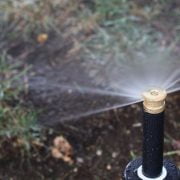Repair negotiations after a home inspection does not need to be gruelling. By following the suggestions below, you’ll be able to simplify the process and move onto other factors to consider after purchasing a home.
Whenever an offer has been accepted for a house, sellers and buyers may mistakenly believe that they are close to wrapping things up. While accepting offers does bring them both closer to things, other key steps are involved with the transaction right up until the end of the day of closing. One step involves home inspections, and with them, significant issues may come to light for example, cracks in your enclosed patio or some dent or breakage on your deck.
Home inspections provide buyers with insight into a house’s roof, foundation, electrical, plumbing, structure, and more. It tells buyers if specific repairs will be necessary, preventing them from paying for expensive problems after the transaction has been finalized. Handling repairs pointed out by a home inspection does not need to be complicated. A shared understanding needs to be present – sellers should understand why buyers want certain repairs completed before closing the deal. The buyer needs to understand a seller’s hesitancy to such stipulations.
Consider the following seven suggestions that can facilitate the repair negotiation process after a home inspection:
Establish What You Want Repaired by the Seller
Although every situation will be different, the seller or buyer may split either all or some repair costs deemed necessary on an inspection report. Sometimes, the buyer is completely responsible; at other times, it’s the seller that needs to take care of things. When an inspection report is being reviewed, point out items you want the seller to repair. Buyers should approach sellers from a courteous and kind place. Long-winded negotiations are likely to transpire, which the realtor representing you will be responsible for. This realtor can also help you establish which repairs must be handled by the seller, and which ones will need to be dealt with on your end.
Discuss Which Repairs Are the Most Crucial
Be mindful that just about every house will have some kind of issue – there is no such thing as a perfect house. When reviewing a list of necessary repairs, categorize them into three different sections:
- A shared understandingSignificant and glaring defects – ones that could be quite costly to fix.
- Issues that fall in the middle between expensive and cheap.
- Minuscule, small items that aren’t a priority.
Concentrate on the significant defects rather than issues that are not as important. If a buyer fixates on small items that aren’t as pressing on the repair list like garden gate ideas, they might not be able to see the bigger picture (in this case, which repairs will be costliest).
Get Repair Quotes from a Qualified General Contractor
Once an inspection report has been received, a buyer might ask an inspector for some pricing estimates to gauge the cost of each repair necessary. In just about all situations, an inspector won’t have the ability to offer an estimate. Alternatively, a contractor can provide you with a ballpark figure. Your real estate agent might also have the ability to offer a few estimates.
Further, the agent can connect you with trustworthy contractors. If the real estate agent has been part of the property industry for a fair amount of time, they will know what repair costs tend to range between. Once the agent has connected you to a contractor, give them a detailed list of items that you want taken care of. The contractor can give you an estimate – not just of potential costs but also of timeframes for each job.
What Do You Prefer: Repairs or Money?
If you’re a seller, consider offering repair money (a.k.a. “credit”) to a buyer rather than handling repairs on your own. Credit is capable of bringing down closing costs for the buyer, which can offset repair expenses. As such, the buyer will be able to handle repairs by themselves without involvement from the seller.
Sellers will not have to be burdened with buyers following-up to see if repairs were handled. If a buyer isn’t content with the work performed, they may demand additional work to be completed. Acting as the go-between for a buyer and contractor adds more tasks to your list of things to do. It would be prudent to allow a buyer to find a contractor themselves, as they will oversee work firsthand. Offering a buyer credit gives them the money they need to cover repair costs.
Be Mindful That Sellers Aren’t Under Any Obligations When It Comes to Repair Work
Purchasing property comes with a lot of emotions. The purchaser will be initially excited about moving into a new place. Tension and stress could come about, though, if a seller is stubborn about covering repair costs. Ask yourself how badly you want the home. Is it truly one you’ve dreamed of having? Are repair costs manageable or outrageous? If you find that repair expenses are within your budget, you could end up with regrets by choosing to leave the table just because a seller was unwilling to budge.
Request Repair Work with An Expression of Gratitude
Making demands of the seller to cover repair costs is highly discouraged. Repairs pointed out by a home inspection report tend to surprise sellers as much as buyers, usually because they are out of the line of vision for a homeowner. Sellers might reside in a house for years without knowing that their foundation is faulty. They don’t become aware of such matters until the findings of an inspection report are revealed.
Try to See Things from a Seller’s Perspective
While you may be resentful or angry at the seller, try to see things from their perspective. Sellers are dealing with a slew of fees and costs that they need to prioritize. As such, repair expenses may not be a top priority for these individuals. Sellers may be open to helping buyers with repair expenses to expedite a deal. Cash may not be on the table for them to do so, though.














[…] of the first things you need to get checked in houses—whether old or new—is the roof. If the roof has loose shingles, holes, or overgrown moss, it is […]
[…] of the first things you need to get checked in houses—whether old or new—is the roof. If the roof has loose shingles, holes, or overgrown moss, it is […]